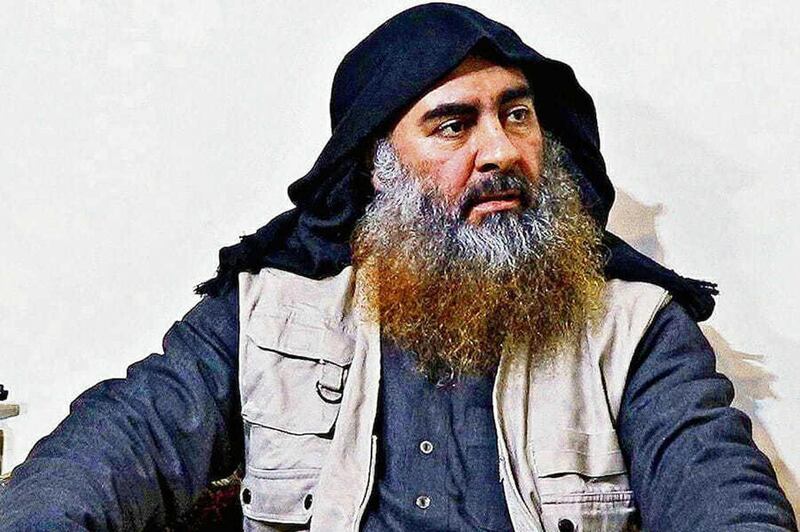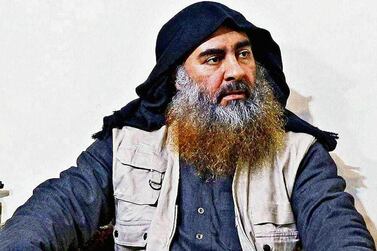Two weeks have passed since ISIS leader Abu Bakr Al Baghdadi blew himself up, as he was cornered in a dead-end tunnel by US forces in his northern Syria compound, yet little is known about the elusive terrorist. Yesterday, The National uncovered the story of Al Baghdadi's brother and former bodyguard Juma, who had managed to travel from Syria to Istanbul unimpeded, just months before the ISIS leader's death.
Security officials believe he was a messenger of Al Baghdadi, providing him with crucial information on ISIS operations in Turkey, Syria and Iraq months after the loss of his so-called caliphate. Juma’s movements seem to have gone undetected by Ankara. He was instead monitored by Iraqi and American security services who watched his every move inside Turkey. Al Baghdadi’s brother and courier did not even use ground-breaking methods to evade detection. With no photos or information about his appearance, age or whereabouts available to the public, Juma is the perfect carrier for Al Baghdadi’s messages - a strategy used by Al Qaeda’s former leader Osama bin Laden to pass on information.
Experts believed that Al Baghdadi was in hiding in eastern Syria, but it was later revealed that he had been residing in Idlib province, less than 10 kilometres from Turkey. Even more worrisome is the fact that security officials believe it is unlikely that Juma was smuggled across the border, they instead think he had been travelling freely, making several 2,300-kilometre trips to the heart of Turkey unhindered.
Juma may have been able to stay off the radar because of his well-hidden identity, but this does not excuse Ankara’s inefficiency in tracking him down, especially as he had been paying visits to his brother close to the border.
Turkish forces have, however, managed to get a hold of Al Baghdadi’s sister Rasmiya Awad. But Ahmet Yayla, a former Turkish counter-terrorism police chief and now a fellow at the George Washington University's programme on extremism, believes she has little to do with the extremist group and says that her capture is a “huge propaganda” exercise for Mr Erdogan, who is scrambling to prove he is clamping down on ISIS.
These revelations go to show that Ankara is not taking the threat of ISIS seriously, allowing for the group to fester at the Syrian border and continue to wreak havoc abroad. Mr Yayla went as far as to tell The National that for Turkish police "ISIS are not the real enemy.'' This idea is corroborated by the launch of a Turkish offensive in northern Syria last month, in an attempt to create a buffer zone free of Kurdish fighters where Turkey could send back up to 3 million refugees. The violent onslaught has forced more than 300,000 innocent civilians to flee and compromised the security of camps and prisons for ISIS members and families controlled by the Kurdish-led Syrian Democratic Forces. Turkish President Recep Tayyip Erdogan considers the Kurdish People's Protection Units (YPG) which leads the SDF to be a terrorist organisation and an offshoot of its home-grown Kurdistan Workers' Party (PKK) that has led an insurgency against the government for decades. In parallel, Turkish authorities have cracked down on ordinary Kurds in the country, even going as far as to remove elected Kurdish mayors that have been vocal against Mr Erdogan.
As the Turkish government cracks down on Kurds within and outside the country, Ankara fails to see that the biggest threat to the region’s security lies in the resurgence of ISIS, especially as the extremists have already started regrouping in Syria and Iraq. Mr Erdogan is set to meet US President Donald Trump in Washington next week. This is the opportunity for the US to demand answers from Ankara, and urge Turkey’s leader to take action against ISIS before more innocent lives are lost to the terrorist group.






